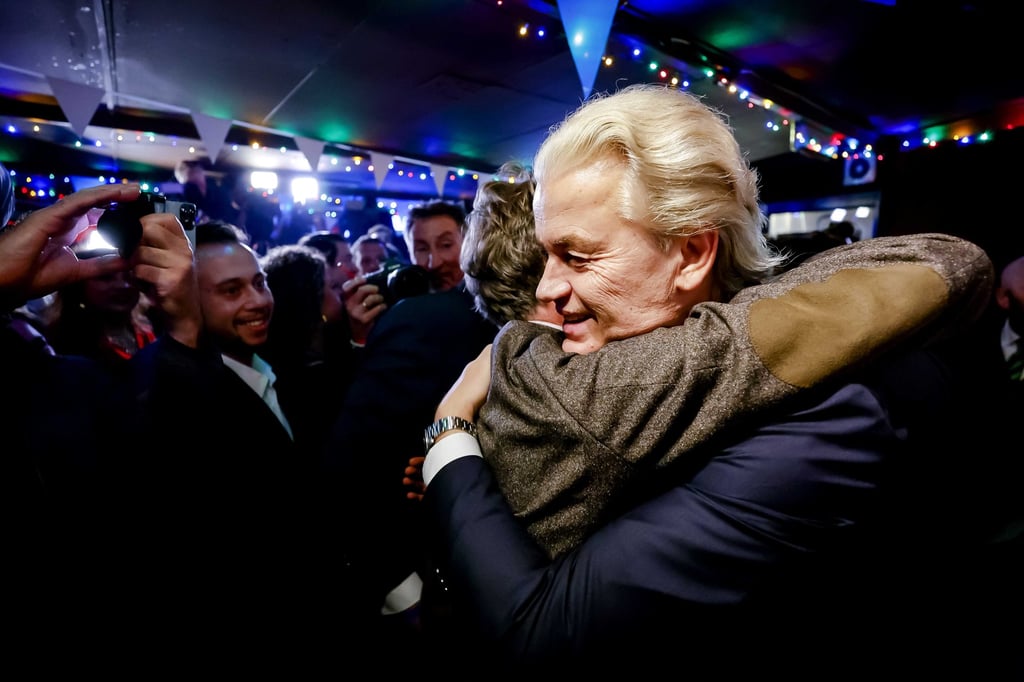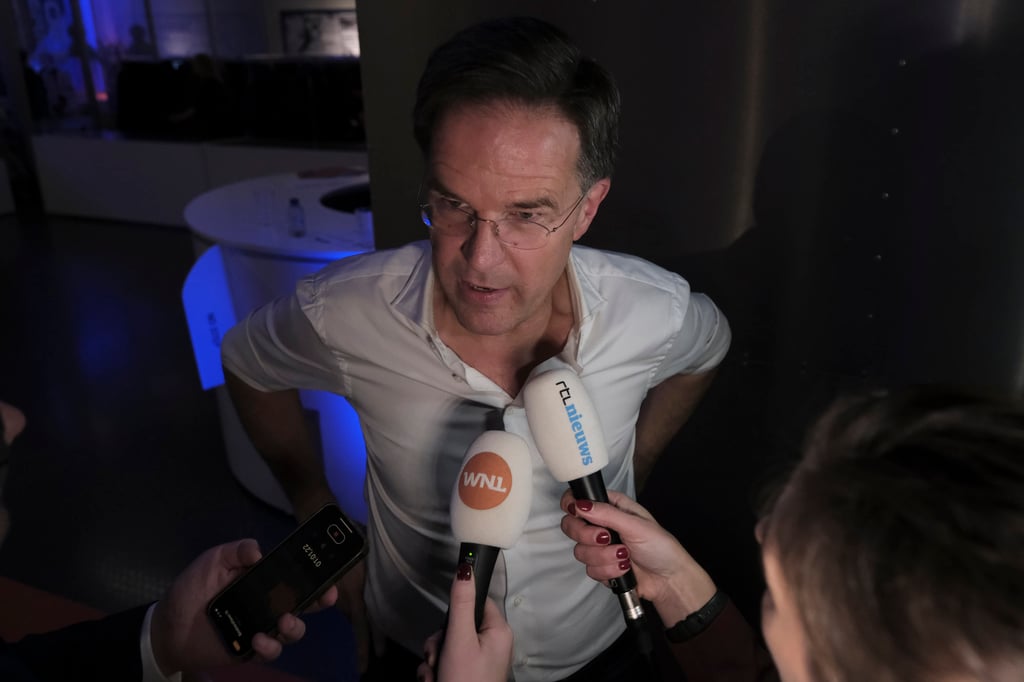Netherlands far-right’s Geert Wilders seeks to form Dutch government after shock election win
- Victory for far-right, anti-Islam Geert Wilders will resound in Europe and around the world
- Beating all predictions, his Freedom Party won 37 seats out of 150

Beating all predictions, his Freedom Party (PVV) won 37 seats out of 150, well ahead of 25 for a joint Labour/Green ticket and 24 for the conservative People’s Party for Freedom and Democracy (VVD) of outgoing Prime Minister Mark Rutte.

“The Rutte era ends with a right-wing populist revolt that shakes (The Hague) to its foundations,” Dutch centre-right daily NRC said. A coalition of the Freedom Party, VVD, and the NSC party of centrist lawmaker Pieter Omtzigt would have 81 seats combined, making it the most obvious combination but one that is still likely to take months of difficult talks.
None of the parties Wilders could form a government with share his anti-EU ideas. “I am confident we can reach an agreement,” he said in his victory speech late on Wednesday. “We want to govern and … we will govern.”

“The Netherlands are not France,” French Finance Minister Bruno Le Maire quickly reacted, while acknowledging that the Dutch election showed “the fears that are emerging in Europe” over immigration and the economy and the need for governments to show to citizens that their policies are bearing fruit.